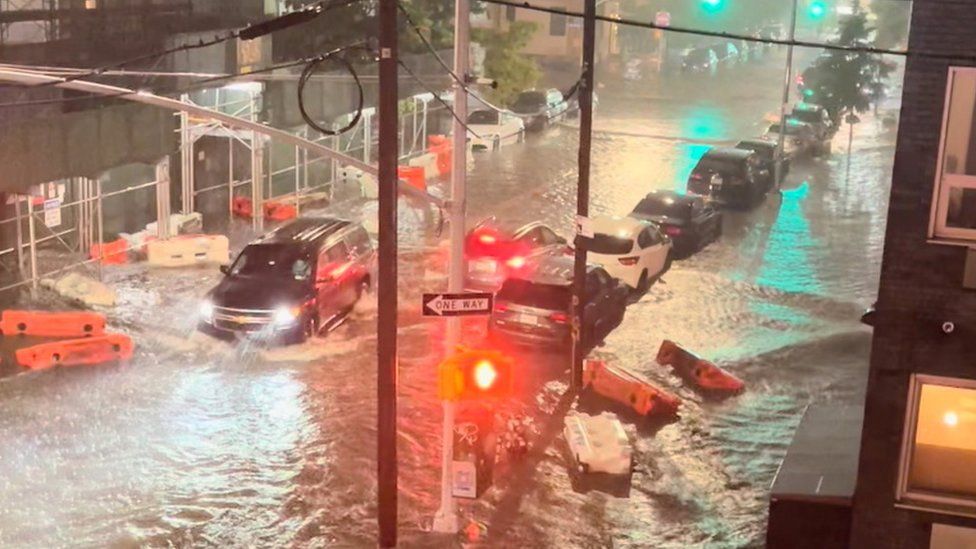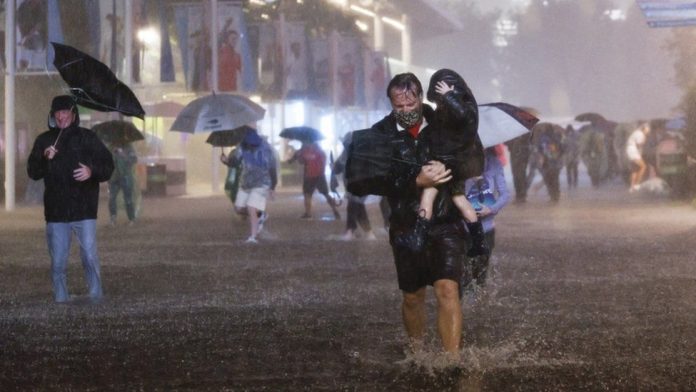A state of emergency has been declared in New York City after it was hit by record rainfall and flash flooding as a result of Tropical Storm Ida.
Mayor Bill de Blasio said the city was “enduring an historic weather event” with “brutal flooding” and “dangerous conditions” on the roads.
Footage on social media showed water pouring into subway stations and people’s homes, and flooded roads.
New Jersey also declared an emergency and reported at least one death.
A person drowned in Passaic, New Jersey, the local mayor said, A tornado also destroyed at least nine homes in Mullica Hill, in the same state.
The roof of a postal building collapsed in Kearny, New Jersey, with people inside at the time, police said. Rescue crews are on the scene, but it’s not clear how many injuries there might be.
The National Weather Service said it had recorded 3.15 inches (8cm) of rain in New York’s Central Park in one hour.
New York police have urged people to stay off the roads and the fire department has said it is responding to calls from across the city.
The city’s subway has mostly closed, and many train services and flights out of New York and New Jersey are suspended.

The remnants of Hurricane Ida have been pushing north across the east of the country, having hit Louisiana as a Category 4 hurricane on Sunday.
Hundreds of thousands of homes in Louisiana remain without power and New Orleans is under a night-time curfew.
Many factors contribute to flooding, but a warming atmosphere caused by climate change makes extreme rainfall more likely.
The world has already warmed by about 1.2C since the industrial era began and temperatures will keep rising unless governments around the world make steep cuts to emissions.
The remnants of Hurricane Ida have been pushing north across the east of the country, having hit Louisiana as a Category 4 hurricane on Sunday.
Hundreds of thousands of homes in Louisiana remain without power and New Orleans is under a night-time curfew.
Many factors contribute to flooding, but a warming atmosphere caused by climate change makes extreme rainfall more likely.The world has already warmed by about 1.2C since the industrial era began and temperatures will keep rising unless governments around the world make steep cuts to emissions.
















































